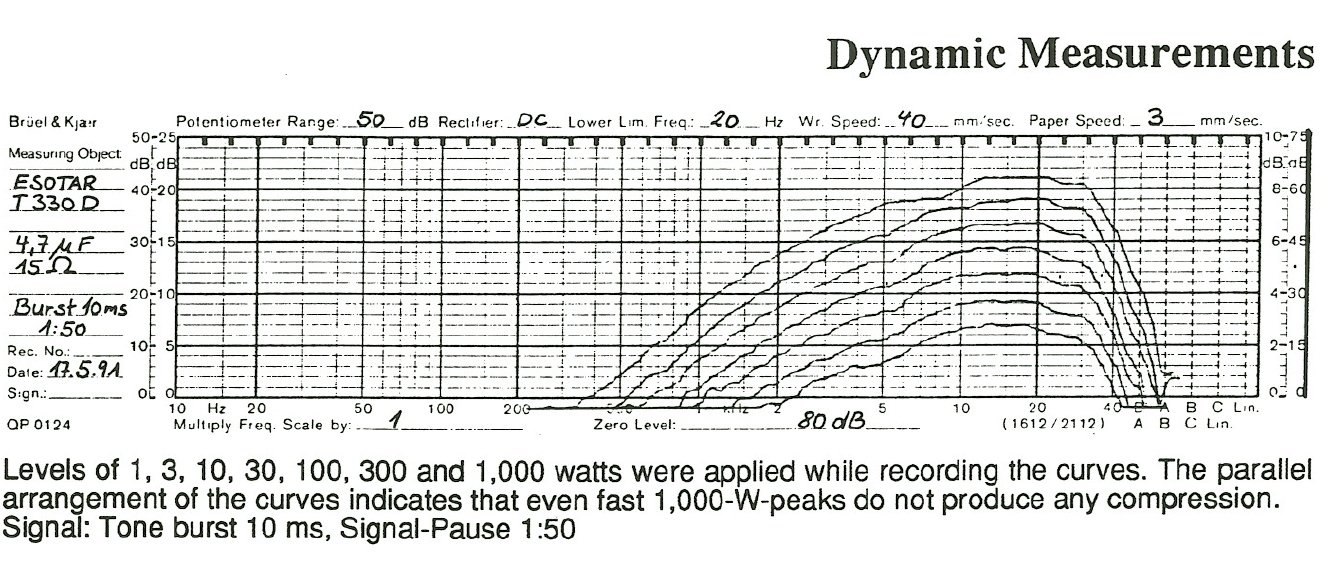(...) That is to say: one doesn't just freely compensate low efficiency in speakers with more amp power, as it comes with a price: heat build-up and eventually thermal compression, or (and I believe this term was "coined" by Mr. @Duke LeJeune): thermal modulation, which relates to the dulling of transient behavior due to "peak heat-up" as the perhaps more prevalent and audible side effect vs. compression that ends up frying the VC's and XO components due to excessive heat. (...)
Thermal modulation exists and is well studied - it is extremely easy to measure, as it implies an electrical change in the resistance of the speaker coil. As far as I see it, it is only relevant at high powers, used by professionals at disco levels or open spaces - I think it is not an issue for people listening at the commonly used levels that do not affect our hearing ability in an irreversible way.
Do you have any electrical measurements in real speakers that show otherwise? Many speakers show compression at high level that is due to mechanical or magnetic speaker non-linearity, that can easily be confused with thermal modulation.















